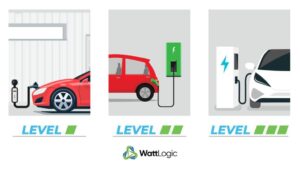If you’re curious about how long it takes to charge a car battery at 50 amps, you’ve come to the right place. We understand the importance of a quick and efficient charging process, which is why we’re here to provide you with the solution. Charging your car battery at 50 amps can be a game-changer, but what exactly is the timeframe for this charging method? In this informative article, we will delve into the details and discuss the optimal charging time, giving you the knowledge you need to keep your car battery running smoothly. So, let’s jump right in!
How Long To Charge A Car Battery At 50 Amps
When it comes to charging a car battery, knowing the right charging time is crucial. One popular charging option is using a 50-amp charger. In this article, we will delve into the topic of how long it takes to charge a car battery at 50 amps. We will explore the factors that can affect charging time and provide you with practical insights and tips for the best charging experience.
Understanding Charging Amps
Before we dive into the specifics of charging a car battery at 50 amps, it is important to understand the concept of charging amps. Charging amps, also known as amperage, refers to the rate at which electric current flows into a battery during the charging process. A higher amperage means a faster charging rate, while a lower amperage results in a slower charge.
The Relationship Between Amps and Charging Time
The charging time of a car battery is directly related to the charging amps. The higher the amperage, the shorter the charging time. However, it is important to note that charging a car battery at extremely high amperage can potentially damage the battery or even cause safety hazards. It is essential to follow the manufacturer’s recommendations and guidelines for the maximum charging amps your battery can safely handle.
Factors That Influence Charging Time
While charging at 50 amps can provide a relatively fast charging time, several factors can affect the actual duration. Let’s take a closer look at some of these factors:
Battery Capacity
The capacity of a car battery, measured in ampere-hours (Ah), plays a significant role in determining the charging time. A higher capacity battery will take longer to charge compared to a battery with a lower capacity. It is important to consider the capacity of your battery when estimating the charging time.
Battery Condition
The condition of the battery itself can impact the charging time. Older or deteriorated batteries may require more time to reach a full charge compared to newer batteries. If your battery is in poor condition, it may be a good idea to consider a replacement rather than relying solely on charging.
Depth of Discharge
The depth of discharge, or how much the battery has been drained, can influence the charging time. If the battery is completely discharged, it will take longer to charge compared to a battery that only needs a partial charge. It is recommended to avoid completely draining your battery to maximize its lifespan and reduce charging time.
Charger Efficiency
The efficiency of the charger itself can impact the charging time. Higher-quality chargers are designed to deliver a more efficient charge, resulting in shorter charging times. Investing in a reliable charger with a high efficiency rating can help optimize your charging experience.
Estimating Charging Time at 50 Amps
While it is difficult to provide an exact charging time at 50 amps due to the various factors mentioned above, we can provide a rough estimate. On average, charging a car battery at 50 amps can take approximately 1-2 hours. However, this estimate may vary depending on the battery capacity, condition, and depth of discharge.
It is important to note that this estimate assumes the battery is in good condition, not overly discharged, and the charger is functioning optimally. It is always recommended to consult the manufacturer’s guidelines for the specific battery and charger you are using to ensure safe and efficient charging.
Tips for Charging at 50 Amps
To ensure a smooth and effective charging process at 50 amps, consider the following tips:
- Check the battery manufacturer’s recommendations for the maximum charging amps.
- Inspect the battery for any signs of damage or corrosion before charging.
- Connect the charger to the battery following the provided instructions and ensure a secure connection.
- Place the charger in a well-ventilated area to prevent overheating.
- Monitor the charging process closely and disconnect the charger once the battery reaches a full charge.
By following these tips, you can maximize the effectiveness of charging at 50 amps and ensure the longevity of your car battery.
Knowing how long it takes to charge a car battery at 50 amps is essential for maintaining your vehicle’s battery health. While there are several factors that can influence the charging time, understanding the relationship between amps and charging time is crucial. By considering the battery capacity, condition, depth of discharge, and charger efficiency, you can estimate a rough charging time. Remember to always refer to your battery and charger manufacturer’s guidelines for specific recommendations to ensure safe and efficient charging.
Frequently Asked Questions
Q: Can I charge a car battery with a higher amperage charger?
Yes, you can charge a car battery with a higher amperage charger. However, it is important to ensure that the charger amperage does not exceed the manufacturer’s recommended maximum for your battery. Charging with a higher amperage charger than recommended can potentially damage the battery or cause safety hazards.
Q: Can I charge a car battery at 50 amps while the engine is running?
Charging a car battery at 50 amps while the engine is running is not recommended. The alternator in your vehicle is designed to provide the necessary charging current when the engine is running. Charging the battery at a high amperage while the engine is running can strain the alternator and potentially lead to other electrical system issues.
Q: Can I leave the battery connected to the charger overnight?
Leaving the battery connected to the charger overnight is generally safe, especially if the charger has built-in safety features like automatic shutoff or trickle charging. However, it is important to refer to the charger manufacturer’s instructions for specific recommendations. Avoid leaving the battery connected to a charger for an extended period without monitoring it, as overcharging can damage the battery.
Frequently Asked Questions
How long does it take to charge a car battery at 50 amps?
The time it takes to charge a car battery at 50 amps depends on various factors, including the battery’s current state of charge, its capacity, and the charger’s efficiency. However, as a rough estimate, it may take around 2-4 hours to fully charge a car battery at 50 amps.
Can charging a car battery at 50 amps damage it?
Charging a car battery at 50 amps can potentially damage it if precautions are not taken. It is important to ensure that the charger’s voltage and current settings are appropriate for the battery being charged. Consult your battery’s manufacturer guidelines to determine the correct charging rate to avoid any potential damage.
Is it safe to charge a car battery at 50 amps overnight?
No, it is generally not recommended to charge a car battery at 50 amps overnight. Charging a battery at a high current for extended periods can generate excessive heat and increase the risk of overcharging, which may damage the battery or even pose a safety hazard. It is advisable to monitor the charging process and disconnect the charger once the battery is fully charged.
What happens if I charge a car battery with a 50 amp charger that has a lower capacity?
If you use a 50 amp charger on a car battery that has a lower capacity, such as a smaller or less powerful battery, it may lead to overcharging. Overcharging can cause the battery to generate heat, release gases, and potentially damage the battery. It is recommended to use a charger that matches the capacity of the battery being charged to avoid such issues.
Can I charge a car battery at 50 amps using a regular household outlet?
No, you cannot directly charge a car battery at 50 amps using a regular household outlet. Most household outlets are typically rated for a maximum of 15-20 amps. To charge a car battery at 50 amps, you would need a dedicated high-powered charger or a specialized charging station capable of providing the required current.
Final Thoughts
Charging a car battery at 50 amps is an effective way to quickly recharge a dead or low battery. At this rate, the battery can typically reach a full charge within 1-3 hours, depending on the battery’s capacity. It is important to note that charging at a higher amperage can result in faster charging times, but it may also increase the risk of damaging the battery. Therefore, it is crucial to follow the manufacturer’s recommendations and safety guidelines when charging at this rate. In conclusion, if you’re wondering how long it takes to charge a car battery at 50 amps, the answer is typically between 1-3 hours, depending on the battery’s capacity.



